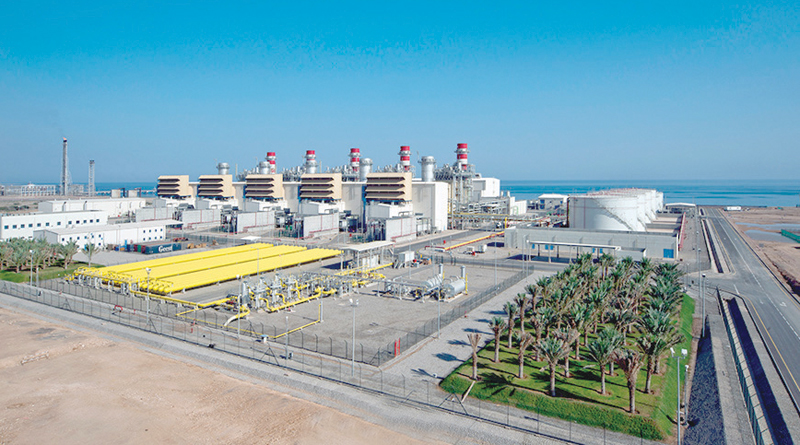

RISING EFFICIENCY: The unit cost of power production declined 7.7pc to RO 30.3 per MWh of electricity in 2016 -
Conrad Prabhu -
MUSCAT, JUNE 26 -
Rising plant efficiency, among other factors, continue to deliver more electricity per unit of natural gas consumed towards power generation in the Sultanate — a trend that is projected to improve by a further 22 per cent by 2020, according to Nama Group, the holding company of government-owned generation, procurement, transmission, distribution and supply entities.
The unit cost of power production dipped to RO 30.3 per megawatt-hour (MWh) of electricity in 2016, down from RO 30.7 per MWh a year earlier — registering an improvement in gas consumption efficiency of around 7.7 per cent. It comes despite a 5 per cent increase in the total units of electricity consumed last year versus corresponding figures for 2015.
Significantly, average generation and supply costs per unit of electricity continue to follow a downward trajectory, declining by as much as 30 per cent over the past 10 years, according to Omar al Wahaibi, CEO of Nama Group.
From a high of RO 35.6 per MWh in 2006 at the outset of Oman’s landmark restructuring and privatisation of the power sector, production costs have slumped to RO 30.3 last year. The unit cost briefly spiked to RO 30.7 per MWh in 2015 following a doubling of the cost of natural gas supplied to power plants to $3 per mmBTU of gas in 2014, up from $1.5 per mmBTU a year earlier.
Factored into the average unit cost of electricity production are costs incurred towards the transmission, supply and distribution of electricity to commercial, industrial, government and retail consumers.
Importantly, per-unit production costs are expected to fall by a further 22 per cent over the next six years in line with a broader strategy by power sector authorities to improve generation, supply and despatch efficiencies, according to Al Wahaibi.
These Improvements are proposed to be achieved most notably by optimizing the uptake of output from a crop of newer and technologically more advanced power plants currently in operation around the Sultanate. Complementing this effort will be a shift from older, less-efficient multi-stage flash (MSF) based desalination plants to modern reverse osmosis (RO) units for water production. Other factors contributing to this goal are improvement in economic despatch of electricity, and the retirement of older, less efficient power generation plants.
These reductions in per-unit electricity generation and supply costs are proposed to be achieved despite an increase in total gas consumption — estimated at around five per annually — necessary to meet electricity demand growth averaging 8 per cent per annum, the CEO added.
Oman Observer is now on the WhatsApp channel. Click here



